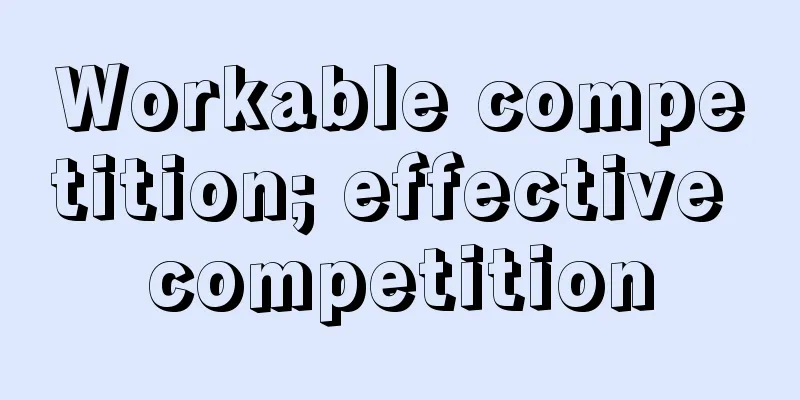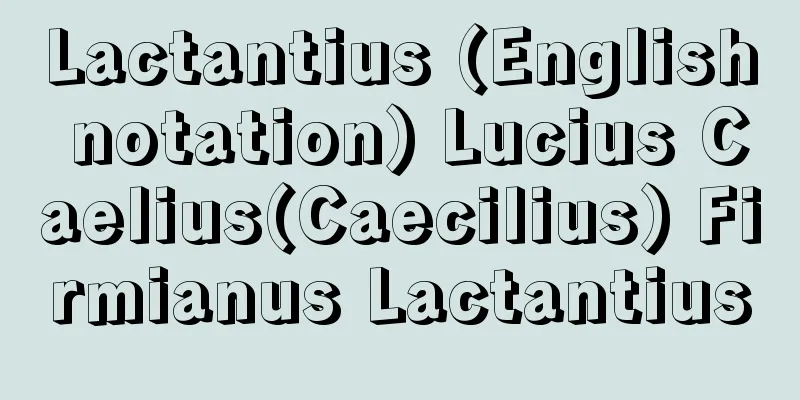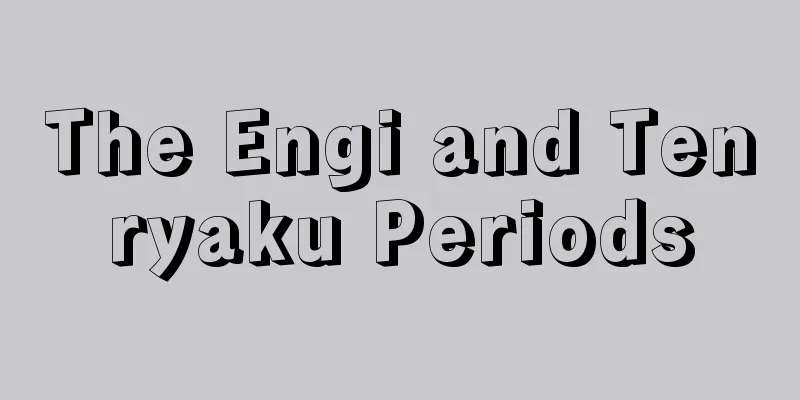Workable competition; effective competition

|
A concept of competition that essentially guarantees economic outcomes that are feasible and desirable for the national economy. It is a central concept in industrial organization theory, and was proposed by J.M. Clark in 1940. There are two schools of thought on what state is considered effective competition. One seeks the criteria for a desirable market structure, and stipulates that a state of effective competition is one that meets the following four conditions: (1) there is a fairly large number of sellers and buyers, (2) neither of them occupies a large portion of the market, (3) there is no collusion between them, and (4) new entrants are allowed. The other criterion is the performance criterion, which considers that the problem is not concentration or collusion as in the structural criterion, but rather restrictions on output, high prices, excess capacity, etc., and holds that market competition is effective if eliminating these factors brings about lower prices, improved quality, and technological innovation in the market. The five criteria listed are: (1) active and effective improvements in products and production technology, (2) reduced production costs leading to lower prices, (3) no excessive investment, (4) profits that are permanently and not substantially higher than those of other similar industries, and (5) competitive efforts that do not result in increased selling expenses. Source: Encyclopaedia Britannica Concise Encyclopedia About Encyclopaedia Britannica Concise Encyclopedia Information |
|
実現可能でかつ国民経済的に望ましい経済的成果を実質的に保証するような競争の考え方。産業組織論の中心的概念で,1940年に J.M.クラークが提唱。どのような状態をもって有効競争とみなすかについては2つの考え方がある。1つは望ましい市場構造の基準を求めるもので,(1) かなり多数の売手と買手が存在し,(2) そのいずれもが市場の大部分を占めておらず,(3) 相互に共謀がなく,(4) 新規参入が可能の4条件を満たした状態が有効競争の状態であると規定している。もう1つは成果基準で,問題は構造基準でいうような集中や共謀にあるのではなく,産出量の制限,高価格,過剰設備などにあると考え,これらを排除することにより市場における価格低下,品質の改善,技術革新などがもたらされるならば市場の競争は有効であると考えるもので,その基準として,(1) 生産物や生産技術の改善が積極・効果的,(2) 生産費用の低下が価格低下に結びついている,(3) 過剰投資がない,(4) 類似の他産業に比べ利潤が永続,実質的に高くない,(5) 競争努力が販売費の増嵩となっていない,の5つがあげられている。
出典 ブリタニカ国際大百科事典 小項目事典ブリタニカ国際大百科事典 小項目事典について 情報 |
Recommend
Imogolite (English spelling)
This clay mineral was named by Yoshinaga Naganori ...
Zeravshan River (English spelling)
A river in Central Asia, straddling the Republic o...
Carbone
C 10 H 14 O (150.22). Monoterpene ketone with a p...
Cantharellus cornucopioides (English spelling) Cantharelluscornucopioides
…[Rokuya Imaseki]. . … *Some of the terminology t...
Designated infectious disease - teidensenbyo
In addition to the 11 legal infectious diseases su...
Uintatherium (English spelling)
An extinct herbivorous mammalian order of slow-foo...
Anekoji-shi - Anekoji-shi
(1) A nobleman of the Kan'in line of the Nort...
Westphalia
…the name of a branch of the tribe of Saxony (the...
Mynah bird - Mynah bird
A bird of the Starling family. Wingspan: 16cm. Its...
Groningen - Groningen (English spelling)
The capital of the province of Groningen in the n...
Morning sickness
Morning sickness is a syndrome caused by pregnanc...
Kajiko Yajima
Women's educator and social reformer. Born on...
Ricco's law
…For a stimulus of a certain strength to produce ...
Accion Española - Accion Española
…After experiencing an ideological crisis during ...
Chiral smectic
...By mixing a small amount of cholesteric liquid...









